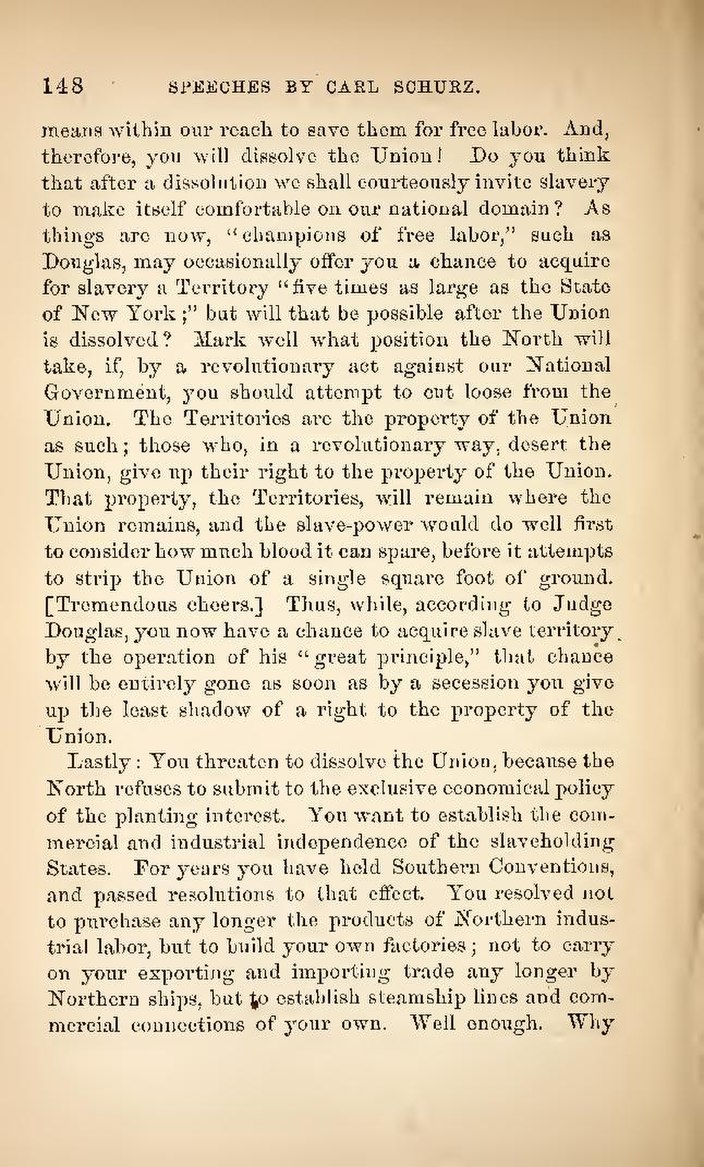means within our reach to save them to free labor. And, therefore, you will dissolve the Union! Do you think that after a dissolution we shall courteously invite slavery to make itself comfortable on our national domain? As things are now, “champions of free labor,” such as Douglas, may occasionally offer you a chance to acquire for slavery a territory “five times as large as the State of New York,” but will that be possible after the Union is dissolved? Mark well what position the North will take, if, by a revolutionary act against our National Government, you should attempt to cut loose from the Union. The Territories are the property of the Union as such; those who, in a revolutionary way, desert the Union, give up their right to the property of the Union. That property, the Territories, will remain where the Union remains, and the slave-power would do well first to consider how much blood it can spare, before it attempts to strip the Union of a single square foot of ground. [Tremendous cheers.] Thus, while according to Judge Douglas, you now have a chance to acquire slave territory by the operation of his “great principle,” that chance will be entirely gone as soon as by a secession you give up the least shadow of a right to the property of the Union.
Lastly: You threaten to dissolve the Union, because the North refuses to submit to the exclusive economical policy of the planting interests. You want to establish the commercial and industrial independence of the slaveholding States. For years you have held Southern Conventions, and passed resolutions to that effect. You resolved not to purchase any longer the products of Northern industrial labor, but to build your own factories; not to carry on your exporting and importing trade any longer by Northern ships, but to establish steamship lines and commercial connections of your own. Well enough. Why
